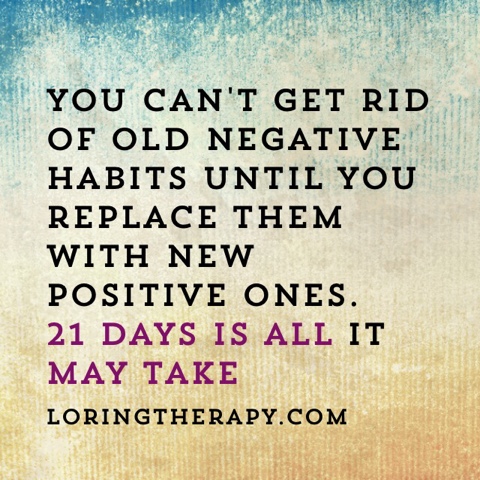Have you ever decided you wanted to do something to improve yourself but just didn’t know where to start? How many of us have struggled to follow-through with a new goal? The key, rests within our own conscious minds. Think for a minute, have you ever told yourself “From now on, I’m going to start going to the gym!”, or “Todays the day I’ll quit smoking!” How many of us actually succeed? To work towards ridding ourselves of old negative habits, we need to replace them with new positive habits. Research suggests that it takes a minimum of 21 days to form a new habit. For example, if you want to start a habit of walking daily, tell yourself “I’m going to walk every night, for 30 minutes for the next 21 days”. Research shows that if you carry-out your new habit for 21 days in a row, you are more likely to continue even after the 21st day.
Below are some positive habits to give a try: (Remember the key is to carry-out your new habit for 21 days in a row)
- Take 3 minutes each day to contemplate everything you are thankful for.
- Take 5 minutes each day to practice deep breathing.
- Take 10 minutes a day to consider options to a problem then take action towards finding a solution.
- Take 15 minutes each morning to meditate before you start your day.
- Spend 10 minutes outside each day to appreciate the beauty surrounding you.
- Perform one small act of kindness for someone else every day.
Keep in mind that we’re all different and some of us may take longer to form a new positive habit and some of us may take less. So don’t beat yourself up if you fall off track, get back up and keeping moving!
Written By: Lara Pomnitz, graduate level intern.
Edited by Charity Loring, LMSW Loring Therapy, LLC http://www.loringtherapy.com/






